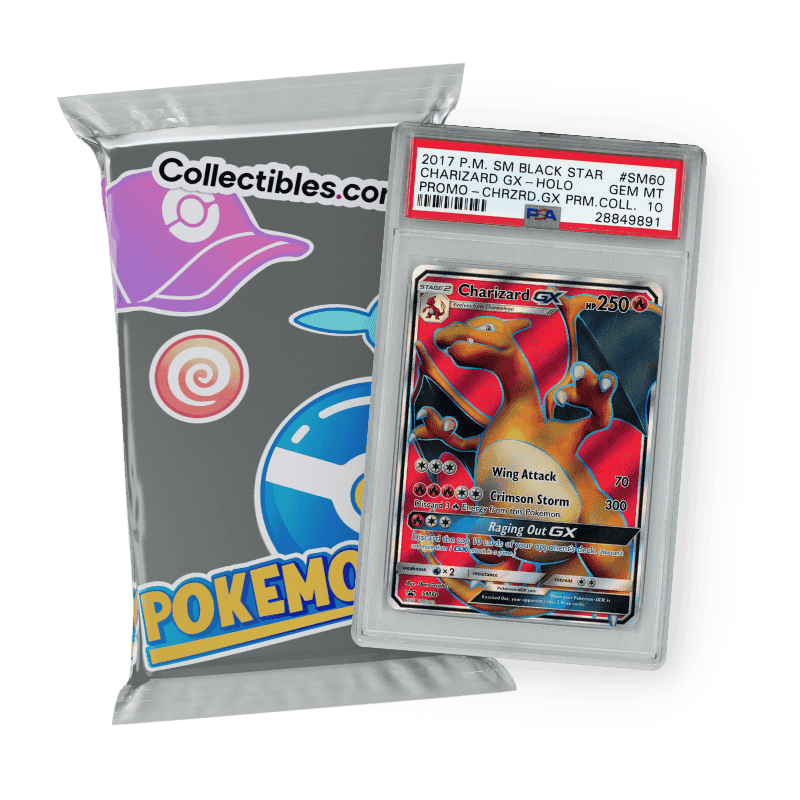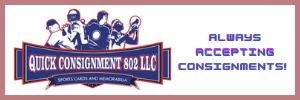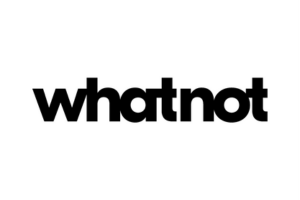
Law of Cards: Navigating Defunct Trading Card Companies’ Submarine IP
Trading card companies have come and gone. Because of that, it's difficult to figure out whether a current company owns an extinct company's assets or if those assets are free for anyone to use.
The recent Crusade litigation between Panini and Leaf is the perfect example. In 2011, Leaf launched its Valiant product that it credited as being influenced by some of Donruss' 1998 Crusade insert cards. Donruss no longer exists, and there were acknowledgements that the technology used to make those specific Crusade cards was lost once Donruss closed. As a result, cards like this were not manufactured for 15 years.
Likely, in view of this, Leaf thought the Crusade design was in the public domain (legal translation: up for grabs) when it released Valiant. It would appear (for two years) that Leaf was correct.
 Not so. In 2013, Panini sued Leaf, claiming it owned the copyrights for the Crusade insert cards, and acquired those rights from a defunct company called Pinnacle. In 1996, Donruss was purchased by Pinnacle Brands. After declaring bankruptcy in 1998, Pinnacle Brands was swallowed by another now-defunct company, Playoff . Playoff was then acquired by the still-living and breathing Panini. It's all very murky, but it breaks down this way: Panini claims that through this cascade of sunken companies, that it owns the 1998 copyrights for these cards.
Not so. In 2013, Panini sued Leaf, claiming it owned the copyrights for the Crusade insert cards, and acquired those rights from a defunct company called Pinnacle. In 1996, Donruss was purchased by Pinnacle Brands. After declaring bankruptcy in 1998, Pinnacle Brands was swallowed by another now-defunct company, Playoff . Playoff was then acquired by the still-living and breathing Panini. It's all very murky, but it breaks down this way: Panini claims that through this cascade of sunken companies, that it owns the 1998 copyrights for these cards.
This situation highlights the dangers of what we call "submarine" Intellectual Property.
Legal translation: That's patents, copyrights or trademarks that someone may own, but no one knows about them because their existence is hidden.
Leaf isn't the only company to fall victim to submarine IP. In 2009, Upper Deck released an O-Pee-Chee (a now nonexistent Canadian candy and trading card company) themed product that was promptly torpedoed with a copyright infringement action from Topps based on its 1975 design.
Hey, if Leaf and Upper Deck can miss submarine IP, anyone can.
So, in a time where there is a high demand for retro and throwback products, how can a manufacturer assure itself that it's free to use others' older designs?
The answer is a lawyer's favorite phrase: "It depends."
Legal translation: That means the answer is complex, takes a long time to explain, and necessarily will cause the charging of quite a few billable hours. Then, the answer will not be conclusive and will require a lot of follow up. And likely, litigation afterward, regardless.
There are a few things that a company can do to hunt for potential submarines. However, there is no foolproof method.
I start by searching the Copyright Office and Patent and Trademark Office's databases to see what dead companies might have live IP that another live company might own. Yes, it's zombie IP that never dies.
Upper Deck is a good example of a company with a lot of submarine IP. At some point, Upper Deck swallowed two now nonexistent trading card companies: Fleer, which had previously acquired SkyBox.
According to the Copyright Office website, Fleer and SkyBox together have over 2,000 copyright registrations filed from 1988-2006. If Upper Deck owns those registrations, don't touch those cards. Upper Deck has a heck of a lot of ammunition in the tubes, ready to sink others that try.
If we do the same looking for potential Panini submarine IP (looking at old Pinnacle, Donruss and Score IP, and assuming Panini owns all of the assets of those companies), it looks on the surface to be less intimidating. Donruss had only 25 copyright registrations that ranged from its 1994-96 Leaf, Leaf Limited and Leaf Limited Rookies sets, Elite Series products, a Heritage Collection, a Premium Collection, a Triple Play collection, and a couple of Series I and Series II products. From Pinnacle Brands, Panini looks to have registrations for a "1998 Donruss Baseball Crusade Green" product, images of Benny Santiago, Fred McGriff, Kevin Mitchell and Ruben Sierra (likely for cards), and a vague registration for "1987 magic motion sportflics & 72 other titles."
That's a heck of a lot less than 2,000, so it might give a manufacturer a little confidence when it comes to older Score, Donruss and Panini products.
It shouldn't.
There are two problems with copyrights. First, the Copyright Office database does not allow you to view what is covered by the registration. You have to work from the title, and hope you know what they're talking about. And when it comes to a vague title like "1987 magic motion sportflics & 72 other titles," it's a little tricky to figure out what the heck is actually covered.
Second, the problem with copyright filings is that companies don't need filings to claim copyrights in works. That's part of what it appears Panini is doing in the Crusade litigation. While it has an old Pinnacle copyright registration, it appears that Panini is also filing new applications on old Crusade products.
So, just because the Copyright Office database looks clear, it does not mean a company is safe. Frankly, when it comes to copyrights, manufacturers need to be very careful. As I wrote earlier:
If it is from before 1923, it's likely free game. If it's between 1924 and 1963, quite a bit is in the public domain, but not all. And if you're looking at works after 1963, unless the author's dedicated it to the public domain, there's not much chance that it'll ever fall into the public domain.
The lesson: be cautious with cards made after 1924 and very cautious with cards made after 1963.
Copyrights aren't the only type of submarine IP. There are patent and trademark submarine IP, too.
There aren't too many old patents to worry about, mostly because patents have a limited life span. But there are still a few out there. Fleer has a few old patents, including one entitled, "Chewing gum product and composition and process for the preparation thereof"
Legal translation: Note, it says "gum product." That doesn't mean it's gum. It allegedly could be gum, but I think it might not be. I mean heck, the claim starts off by saying the invention is "A chewing gum composition in the form of a flowable conglomerate."
Anyone else up for blowing bubbles with a flowable conglomerate?
Patents have a finite life, and this one is dead, so manufacturers can go ahead and can include this flowable conglomerate in their packs if they want to. Thankfully, they don't any more.
Trademarks are different. 2013 has been the year of the trademark for trading card companies, and some of the submarine IP here is notable.
Trademarks can live forever, but they need to be used in commerce or they become abandoned.
Legal translation: Use it, or lose it.
Trademark database searches show legions of dead trademarks from dead trading card companies. But, some are still alive, like Fleer trademarks (and, hence, likely owned by Upper Deck), including Razzles, Scouting Report, Legacy Collection, Goudey, Season Crowns, Hot Glove and Diamond Tribute.
A few Pinnacle brands that are still alive (and likely owned by Panini) are Slideshow, Action Packed, Rookie Roll Call, Show Down and, my favorite, Certified. Yes, that one snuck by the goalie. Technically, Panini owns the word Certified when used as a trademark on a card.
File that one right next to Panini's Limited as a competitor for the most expansive trading card trademark filing.
And right now, a pretty dangerous piece of trademark submarine IP, too.
The take home is, if manufacturers travel down the retro-route, there are a few actions they can take to safeguard themselves, but you can't bulletproof yourself in every instance. If there is any doubt, it might be best to ask for permission before, than forgiveness later.
The information provided in Paul Lesko's "Law of Cards" column is not intended to be legal advice, but merely conveys general information related to legal issues commonly encountered in the sports industry. This information is not intended to create any legal relationship between Paul Lesko, the Simmons Browder Gianaris Angelides & Barnerd LLC or any attorney and the user. Neither the transmission nor receipt of these website materials will create an attorney-client relationship between the author and the readers.
The views expressed in the "Law of Cards" column are solely those of the author and are not affiliated with the Simmons Law Firm. You should not act or rely on any information in the "Law of Cards" column without seeking the advice of an attorney. The determination of whether you need legal services and your choice of a lawyer are very important matters that should not be based on websites or advertisements.
 | Making purchases through affiliate links can earn the site a commission |


































